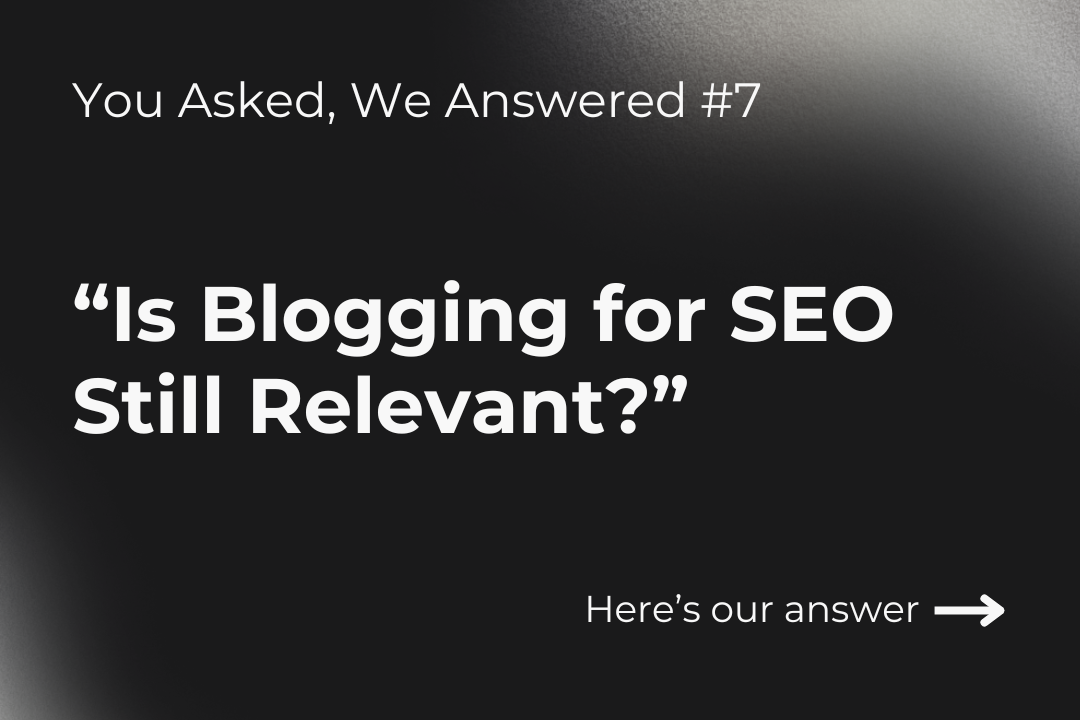Is blogging for SEO still relevant?
Blogging for SEO is still relevant, but only if you create blog content that provides genuine advice and helpful information.
With the rise of AI, shifting user behavior, and increasing competition, it’s easy to wonder if blogging has lost its edge.
But let’s clear the air – blogging for SEO isn’t dead.
So why does everyone think blogging is dead?
Before we dive deeper into the topic, here’s a quick background context for anyone who just joined the party.
The idea that blogging is on its way out has gained traction, largely due to the rapid advancements in AI. With AI-generated content flooding the internet, some SEO specialists and content creators are concerned that traditional blogging might be losing its impact.
AI tools like ChatGPT can churn out content at lightning speed, making it tempting to rely solely on machines for content creation.
This shift has led some to believe that blogging is becoming irrelevant, especially when it comes to ranking on Google.
However, this perspective misses the mark on a crucial point – AI-generated content can’t replace the depth, nuance, and credibility that human-created content offers, particularly in industries where experience and expertise are vital.
3 reasons why blogging is still relevant for SEO
We, at Pillars Media, think that blogging is still very much relevant for SEO (for now at least).
We won’t shove a long list of reasons onto your screen, so here are the 3 sole reasons why we think blogging is still relevant for SEO.
1. Users still prefer answers from credible sources
Despite the rise of AI, there’s a significant number of users who still prefer getting their information from credible, human sources.
When it comes to industry-specific questions that require deep experience and knowledge, people trust experts over algorithms. Blogging allows you to showcase your expertise and build trust with your audience, something AI simply can’t replicate.
2. Reinforcing website's relevant keywords volume
For businesses relying on their websites and Google rankings to generate leads, blogging is still one of the most effective ways to increase the volume of relevant keywords on their site.
By consistently publishing high-quality content, you can target a wide range of keywords related to your industry. This not only helps with SEO but also ensures that your content is valuable and informative to your target audience.
3. Build connections with target audience
Blogging is more than just an SEO tool – it’s a way to connect with your audience. By creating genuine, helpful content (like what we try to do with our content), you can engage with your readers and understand their needs better.
We’ve received countless emails from readers thanking us for our “You Asked, We Answered” blogs, which provide valuable insights tailored to their queries.
This kind of interaction builds a loyal audience and strengthens your brand’s relationship with its customers.
Conclusion
Blogging for SEO is more challenging than ever, but it’s still very much relevant.
As long as your blog content is genuine, helpful, and people-focused, it will continue to be a powerful tool for driving traffic and engaging your audience.
Our advice? Stay consistent, do thorough research, and use AI to help speed up the process, but never let it replace the human touch.
Pillars Media, a digital marketing agency based in Malaysia, has successfully worked with global clients to enhance their online presence.
If you’re looking to elevate your digital marketing strategy, schedule a consultation with us today.
Let’s take your blog – and your brand – to the next level.
You Asked, We Answered
“You Asked, We Answered” is one of our content segments where we collect questions related to digital marketing, website design, leads generation, Google Ads, and more, from different platforms (Reddit, Quora, etc.), and answer them here!
We’ll be sharing a lot more on our website. If you are interested in reading more of these, let us know through our email!

